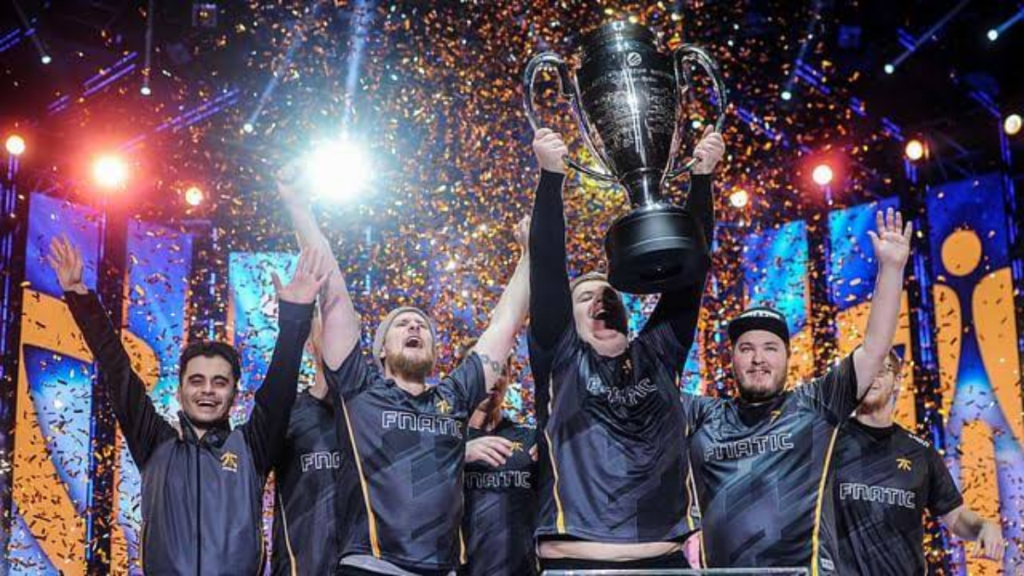In the competitive world of esports, developing top talent is crucial for any team aiming to achieve greatness. Like traditional sports have academies and training camps, esports organisations have developed sophisticated methods to nurture and enhance their players’ skills.
This article explores how these leading teams cultivate champions and the role sponsors, such as Playinexch.io, play in supporting these efforts.
Identifying potential
The journey to becoming an esports champion begins with identifying potential talent. Organisations invest heavily in scouting promising players who exhibit exceptional skill and a positive mindset.
Key strategies include:
- Scouting at tournaments: Teams send scouts to regional and international competitions to observe players in action, evaluating their performance under pressure.
- Online talent hunts: Many organisations conduct online competitions to discover hidden gems who may not have the means or opportunity to attend major events.
- Community engagement: Teams also engage with the gaming community through social media and streaming platforms to identify young talents who are making waves online.
- Academic partnerships: Some organisations collaborate with educational institutions to find talented players who focus on their academic careers. These partnerships allow teams to access a pool of disciplined and well-rounded individuals who can balance both competitive play and their studies, ensuring a steady influx of mature and versatile players into the esports scene.
The backing from the Playinexchange betting website enhances teams’ capabilities to scout and train upcoming esports stars. These sponsorships are crucial, offering the financial support needed to discover and invest in new talent across various regions.
Structured training programs
Once talent is spotted, the real work begins. Leading esports teams operate much like professional sports teams, with structured training programs designed to develop each player’s abilities. These programs focus on:
- Technical skills training: Players undergo rigorous sessions to hone their gaming skills, including reflexes, precision, and strategic thinking.
- Physical conditioning: Contrary to popular belief, physical fitness plays a significant role in esports. Programs often include exercises to improve endurance, reduce fatigue, and enhance overall health.
- Mental health support: Mental resilience is critical in esports. Teams provide psychological support through sports psychologists and routine mental health check-ups to help players handle stress and pressure.
These comprehensive training programs ensure that players are prepared not just to compete but to excel at the highest levels.
The role of sponsorships
Sponsorships are vital in providing the resources necessary for these extensive training programs. Partnerships with companies allow teams to fund state-of-the-art training facilities, access cutting-edge technology and offer competitive salaries that attract the best talents.
Sponsors also help in:
- Enhancing training facilities: Sponsors provide financial backing to equip training centers with the latest technology and comfort, making them conducive environments for player development.
- Hosting boot camps: Some sponsors fund specific training camps where teams can practice and learn away from distractions, focusing entirely on improvement.
- International exposure: Sponsorships enable teams to participate in international tournaments, giving players valuable experience against top-tier global competitors.
These sponsorships support the financial aspects of player development and contribute to a team’s global presence and competitive edge.
Cultivating a winning culture
Beyond individual training, the best organisations foster a culture of success that influences all team members. This culture is built on:
- Teamwork and communication: Training programs emphasise teamwork, communication, and strategic collaboration among players.
- Continuous learning: Players are encouraged to continuously analyse their gameplay and learn from each game, regardless of the outcome.
- Professional development: Workshops and seminars on professional conduct in esports help players build their careers sustainably.
The development of talent in esports is a complex, multi-faceted process that involves scouting, training, mental and physical conditioning, and the cultivation of a team-oriented culture.
With sponsors’ support, esports organisations can provide their athletes with the resources they need to develop into champions. As the industry continues to grow, the sophistication of these development programs is set to increase, shaping the future of competitive esports.
Esports teams that excel in developing their players set the standard in the competitive arena, proving that anyone with potential can become a champion with the right support and training. This ongoing investment in talent is what keeps the esports industry vibrant and continuously evolving.

